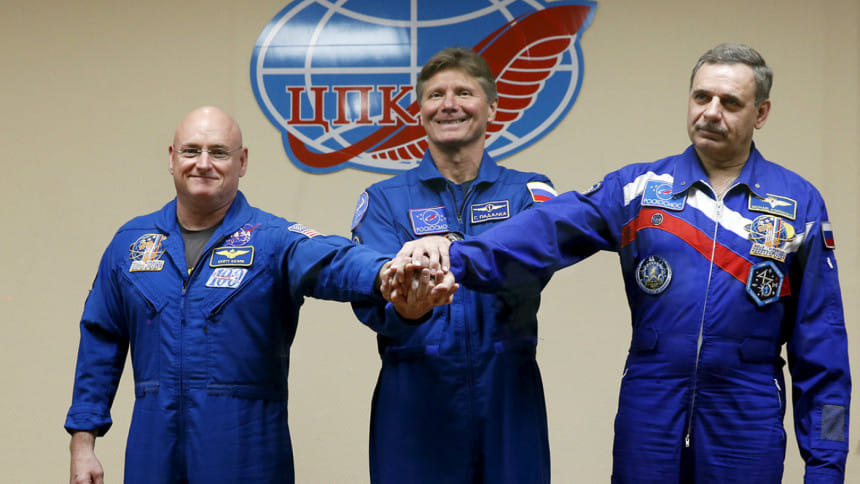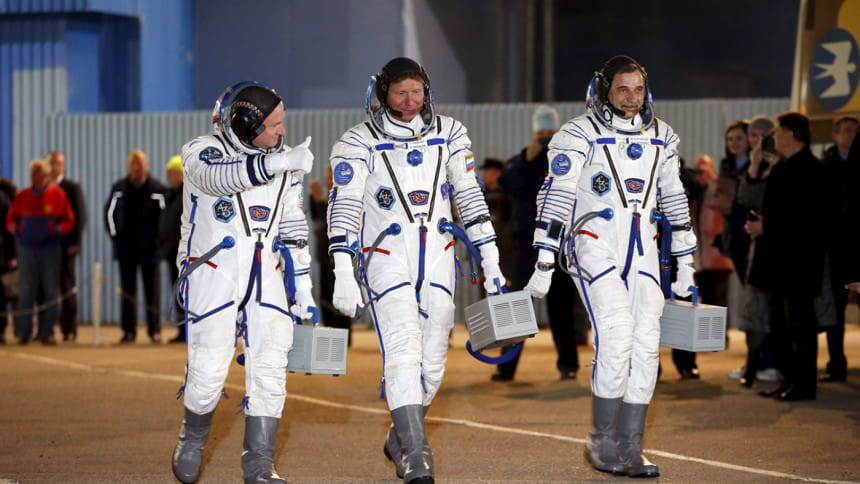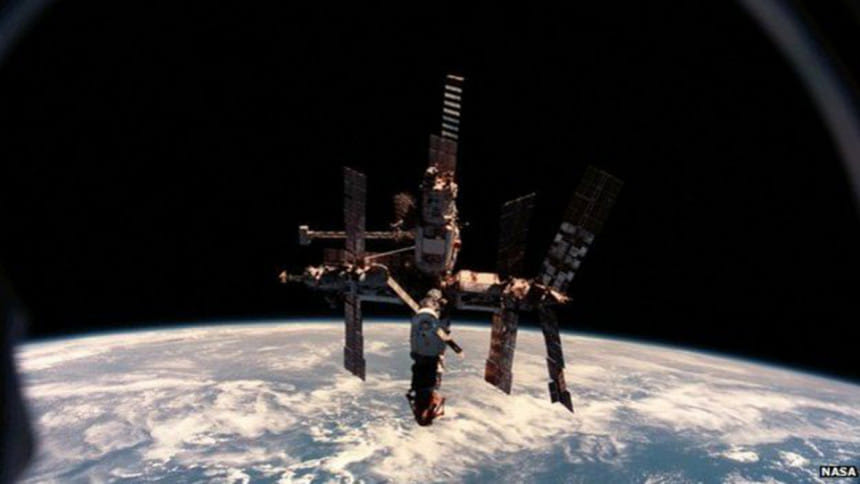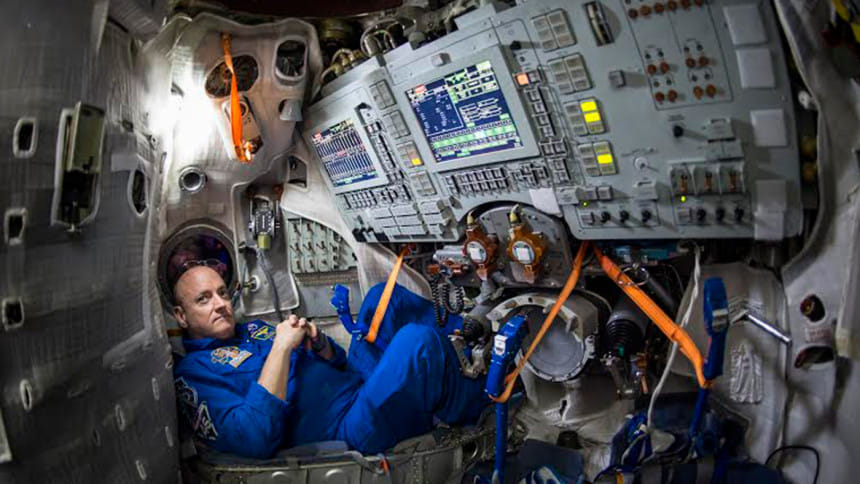US, Russian duo begin 12-month space trip

US astronaut Scott Kelly and Russian cosmonaut Mikhail Kornienko have docked for the start of a 12-month tour of duty on the International Space Station.
It will be the longest continuous stay anyone has had aboard the 400km-high (250 mile) orbiting platform.
Huge thanks to all that made this beautiful launch possible. #YearInSpace pic.twitter.com/r08sKTRED9
— Scott Kelly (@StationCDRKelly) March 28, 2015
The spacecraft docked successfully at 01:33 GMT on Saturday, Nasa said.
#YearInSpace crew members Scott Kelly and Mikhail Kornienko will spend about a year on the space station to better understand how the human body reacts and adapts to the harsh environment of space.
Posted by International Space Station on Friday, March 27, 2015
Scientists hope to get a keener idea of the effects on the human body of living in microgravity for extended periods.
The space agencies say the data will be invaluable as they plan towards eventually mounting a mission to Mars.
Kelly and Kornienko launched from Baikonur in Kazakhstan in a Soyuz vehicle at 01:42 local time on Saturday (19:42 GMT Friday).
Watch @NASA TV now for live coverage of hatch opening as #YearInSpace crew joins Expedition 43 http://t.co/C7LVQGyw5P pic.twitter.com/n4yGraHmHM
— Intl. Space Station (@Space_Station) March 28, 2015
Ждем открытия люков и встречи с коллегами! // Waiting for our colleagues - Gennady, Mikhail and Scott pic.twitter.com/vdXOqxGK6l
— Anton Shkaplerov (@AntonAstrey) March 28, 2015
They were joined on the flight up by cosmonaut Gennady Padalka, but his tour will only last the normal six months.

Although Kelly and Kornienko will set an endurance record for this space station, some of the stays aboard the old Russian Mir platform were much longer.
Four cosmonauts lived on Mir at various times for more than a year, with Valeri Polyakov spending a mammoth 437.7 days in orbit in 1994-95.
"The last time we had such a long duration flight was almost 20 years and of course all scientific techniques are more advanced than 20 years ago,'' Kornienko was quoted as saying by the AP wire service in the pre-launch press conference.
"And right now we need to test the capability of a human being to perform such long-duration flights. So this is the main objective of our flight - to test ourselves."

Kelly added: "One of the differences here is that we're doing it as an international partnership, and if we're going to go beyond low-Earth orbit again, perhaps to Mars, because of the cost and the complexity it will most likely be an international mission, so we see this as a stepping stone to that."
Space twins
Knowledge on how to mitigate some of the deleterious effects of living in zero-g has improved markedly since the Mir era, and the expectation is that Kelly and Kornienko will come back in a better shape than those early pioneers.
Programmed nutrition and exercise routines now prevent much of the bone density loss and muscle weakness that earlier astronauts used to experience.
However, there are other problems that doctors still need to study and understand. They have poor data on the effects on immune function, for example, and there is considerable concern about the damage spaceflight causes to the eyes. This is a newly recognised phenomenon, and appears to be related to the way fluid is redistributed in a weightless body.

Pressure is seen to build in the skull and on the optic nerve, and a large number of astronauts return to Earth complaining that their vision is not as good as when they went up.
By having Kelly and Kornienko onboard for a year, the agencies will be able to monitor how such complications progress beyond the normal six-month tour of duty.
Kelly's situation is made more interesting by the fact that he has an identical twin brother, Mark Kelly, who was himself an astronaut before retiring from the US space agency in 2011.
The pair will be used in a comparative study: one in space, one on the ground.
Relativity theories predict that Scott Kelly should age less quickly than his brother while speeding above the Earth - but only by a few milliseconds over the year.

 For all latest news, follow The Daily Star's Google News channel.
For all latest news, follow The Daily Star's Google News channel. 



Comments